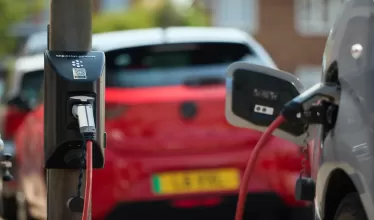On Wednesday, Prime Minister Rishi Sunak announced a rollback on key Net Zero policies, including pushing back the 2030 ban on the sale of new petrol and diesel vehicles by five years.
The delay means that motorists will still be able to purchase new petrol and diesel vehicles for a further five years. Second-hand petrol and diesel sales will not be affected by the ban.
The original ban, which was announced in November 2020 under Boris Johnson’s government, was introduced as part of plans to “accelerate a greener transport future through a two-step phase-out of petrol and diesel cars.” Indeed, the plan “put the UK on course to be the fastest G7 country to decarbonise cars and vans,” according to the government's announcement at the time.
The change to the policy, however, has been met with widespread condemnation across the industry, from car manufacturers to charge point operators. In a statement on Wednesday, Ford UK Chair Lisa Brankin said pushing back the ban would not only be a mistake, but hinted it could put further investments at risk.
"The UK 2030 target is a vital catalyst to accelerate Ford into a cleaner future," said Brankin. "Our business needs three things from the UK government: ambition, commitment and consistency. A relaxation of 2030 would undermine all three."

The move to delay the ban has been met with widespread condemnation from the EV industry.
Trade group ChargeUK, which represents the UK’s charging infrastructure industry, said in a statement: “Today’s extremely worrying news is not consistent with economic stability or confidence. It will compromise the entire industry, and place jobs and consumer and investor confidence at risk.
”More importantly, government will penalise individual drivers who are doing the right thing. More and more people are making the transition to electric vehicles, as they have been encouraged to do. They are entitled to expect government to keep its promises and continue to support the roll out of charging infrastructure across the UK.”
Even figures on the international stage, including former US vice-president Al Gore, found the move both disappointing and short-sighted.
Al Gore told CNN: “I find it shocking and really disappointing … I think he’s done the wrong thing. I’ve heard from many of my friends in the UK, including a lot of Conservative party members who have used the phrase, ‘utter disgust’.”
With the electrification of transport an integral plank supporting the UK’s Net Zero policy, and on target across most measures in the Committee for Climate Change’s report earlier this year, this latest move brings into question the government’s commitment to Net Zero and puts these important targets at risk.
“Changing the policy at this late stage is very disappointing and unnecessary. The industry is primed and ready to support a steady transition to electric vehicles. Even with the 2030 ban in place, this would mean that over 70% of all cars would still be petrol or diesel at this date,” said Melanie Shufflebotham, Co-founder & COO at Zapmap.
“While this is a setback, we should take heart in the sheer momentum already behind the electric car market in the UK – from the high number of electric car sales through to the growth of charging infrastructure and the shift by many mobility companies and fleets to electric. The industry will continue to move forward at pace.”
The latest statistics from Zapmap show that the number of public charging points is rapidly expanding, with the UK fast approaching the 50,000 mark. Indeed, at the end of August this year, there were 48,450 electric vehicle charging points across the UK – representing a 42% increase in the total number of charging devices since August 2022.

The UK is fast approaching 50,000 charging devices across the country.
Mike Hawes, chief executive of the Society of Motor Manufacturers and Traders, added: “The automotive industry’s commitment to a zero-emission new car and van market remains unchanged. Net zero cannot be achieved without this sector’s decarbonisation.
"Manufacturers will continue to put innovative new models on the market but consumers need encouragement to buy more than ever."
The new 2035 date for the ban on the sale of new petrol and diesel vehicles will bring Britain in line with the European Union's plan for new cars sold after 2035 to be zero emission vehicles.
Despite the postponing the ban, on Thursday the government appeared to confirm that the Zero Emissions Vehicle (ZEV) mandate will remain in place. Under this policy, car manufacturers will have to meet strict quotas for selling electric cars. From January, more than a fifth of vehicles sold must be electric, while by 2030 the target is expected to climb to 80%.
You can see the full transcript of the Prime Minister's speech here.



